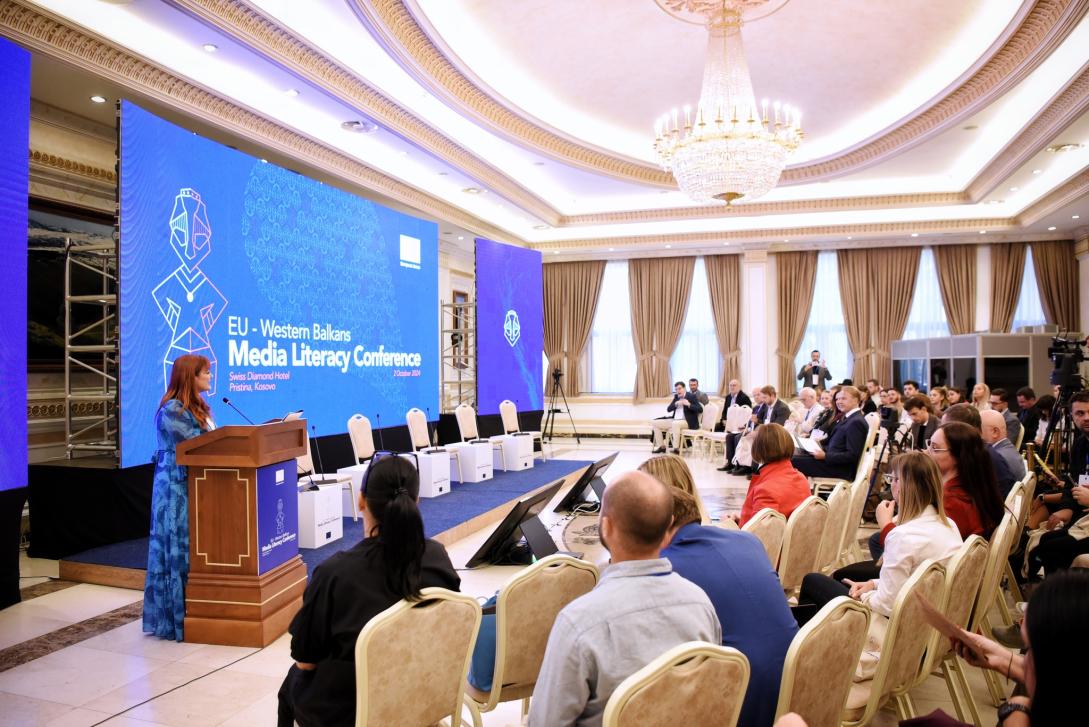Pristina Hosts EU-Western Balkans Media Literacy Conference

The conference’s theme, "Constructive Journalism: Empowering Informed and Resilient Societies," addressed the growing problem of foreign information manipulation and interference (FIMI). Experts shared best practices on how constructive journalism—news that is solution-oriented—can help counter disinformation and provide the public with more accurate, reliable stories.
In today’s fast-paced media landscape, journalists face new challenges, from navigating the flood of real-time data to fighting disinformation. The conference kicked off with a panel on how media professionals can meet these challenges head-on. Participants discussed how constructive journalism, which focuses on solutions and societal change, can reshape media narratives and rebuild public trust.
A practical session on constructive journalism, featuring a hands-on masterclass, was one of the highlights. Journalists learned how to create stories that not only inform but also drive positive change in society. The session emphasized the balance between accuracy and engagement, helping participants develop stories that inspire action.
Another key feature was a tabletop exercise on tackling FIMI, where participants applied their skills to real-life disinformation scenarios. This exercise reinforced the need for media professionals to recognize and dismantle misleading narratives, especially those fuelled by foreign actors.
The conference was also filled with inspirational talks. Speakers from North Macedonia and Kosovo shared personal stories of overcoming challenges in media, reminding participants that real change is possible when people come together with a common goal. They highlighted creativity, collaboration, and resilience as vital tools for a stronger media environment. The talks encouraged attendees to break the break news cycle and see themselves as agents of positive change in society.
As the conference concluded, key recommendations emerged to address the issues discussed. The need for sustainable journalism models, the value of positive storytelling to re-engage audiences, and the importance of trust over speed in today’s 24/7 news cycle.
The conference’s impact was felt far beyond the event itself, generating over 30 media articles across the region and reaching nearly 20,000 people via the EU Office in Kosovo’s social media channels. Live-streamed segments and video content drew over 6,000 views, amplifying the discussions and ideas shared.
The EU-Western Balkans Media Literacy Conference highlighted a collective commitment to promoting a strong and ethical media landscape. It celebrated the resolve to uphold democracy and truth in today’s complex world. As participants left, they felt inspired and ready to make a real difference, demonstrating that media can be a powerful force for good.






















